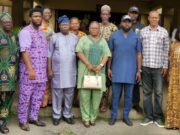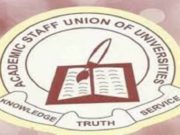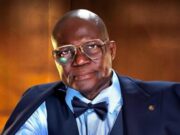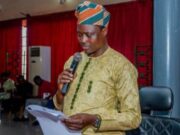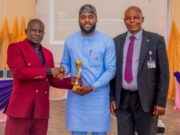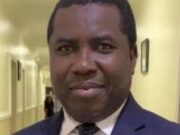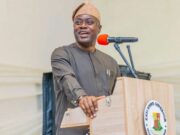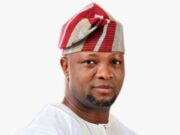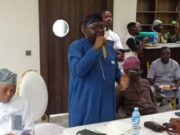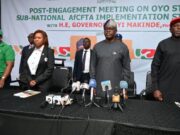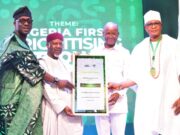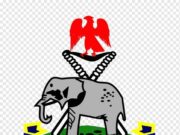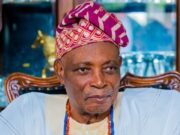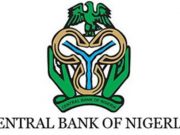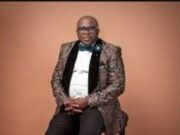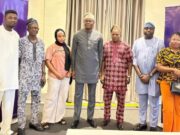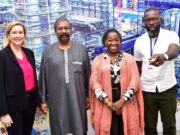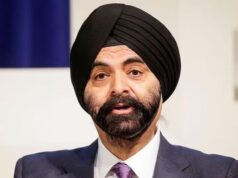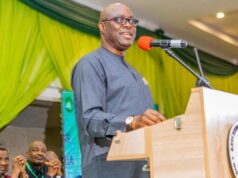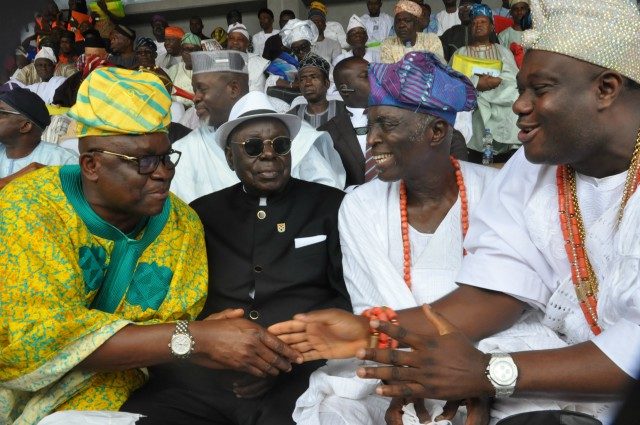
The much talked about Yoruba Summit held in Ibadan on Thursday has suggested that Nigeria should be governed on regional basis.
The Summit also advocated that power to create local governments and assign functions to them shall be vested in state.

Read the full text of the communiqué issued after the summit that was attended by Governor Ayodele Fayose of Ekiti State, Chief Niyi Akintola, Babafemi Ojudu, Eng Iyiola Omisore, Yinka Odumakin, Dr Olusegun Mimiko, Chief Areoye Oyebola, Dr Olusegun Mimiko and several others.
COMMUIQUE OF YORUBA SUMMIT HELD IN IBADAN ON 7TH SEPTEMBER, 2017
PREAMBLE
Leaders and people of Yoruba nation met in a solemn gathering at the Lekan Salami
Stadium, Adamasingba Ibadan to deliberate on the restructuring agenda and the future of
Nigeria, The summit was attended by Yoruba leaders, governors, parliamentarians, Yoruba social cultural groups, professional bodies, market leaders ,youth groups and friends of the Yoruba nation.
After exhaustive deliberations by the largest gathering of Yoruba people from the six south-west
states, Kwara and Kogi states, the following communiqué was adopted.
Summit recalls with nostalgia, the great strides made by the Yoruba nation in the years of self-
government up until the abrogation of the federal constitution in 1966 evident in mass literacy,
novel infrastructural strides and giant leaps in all spheres of human development.
Summit noted that the crisis of over-centralization has led to mass misery in across the country
with poverty levels at 72%, unemployment rate at 65% internal immigration and internal
displacement, security threat in form of Boko Haram, herdsmen and organized crime.
Summit convinced that Nigeria is careering dangerously to the edge of the slope except urgent
steps are taken to restructure Nigeria from a unitary constitution to a federal constitution as
negotiated by our founding fathers at independence in 1960, it was resolved as follows:
- That Yoruba insists that Nigeria must return to a proper federation as obtained in the
1960 and 1963 constitutions. This has been our position since 1950 Ibadan conference
and developments in Nigeria over the last fifty years reinforce our conviction. - That Yoruba are clear that restructuring does not mean different things to different people other than that a multi-ethnic country like Nigeria can only know real peace and
development if it is run ONLY along federal lines. - That the greatest imperatives of restructuring Nigeria is to move from a rent-seeking and
money sharing anti-development economy to productivity by ensuring that the federating units are free to own and develop their resources. They should pay agreed sums to the
federation purse to implement central services. - That the federating units- whether states, zones or regions must themselves be governed
by written constitution to curb impurity at all levels. - Nigeria shall be a federation comprised of six regions and the Federal Capital Territory,
- The Federal Government shall make laws and only have powers in relation to items
specified on the legislative list contained in the constitution of the Federation. - The Regions shall in turn be composed as states.
- Each Region shall have its own constitution containing enumerated exclusive and
concurrent legislative lists regarding matters upon which the regions and the states may
act or legislate.
- Contiguous territories, ethnic nationalities or settlement shall be at liberty through a
plebiscite, to elect to be part of any contiguous region other than the region in which the
current geo-political zone or state boundaries places them. - States as presently comprised in the geo-political zones into which they fall, which shall
become regions, shall continue to exercise the executive, legislative and judicial functions
currently exercised at that level of government. - The States with a region shall determine the items on the legislative lists in the Regional
constitution for the purpose of good government and the administration and provision of
common inter-state social, economic and infrastructural requirements. Residual powers
shall be vested in the states. - The power to create states shall be within the exclusive powers of the region which shall
be obliged to create a state provided a plebiscite is conducted, following a request by an
agreed percentage of the residents of the ethnic nationality within a state. The procedure
for conducting a plebiscite and the percentage of any ethnic nationality shall be out in
the regional constitution. - The power to create local governments and assign functions to them shall be vested in
the states. - States shall be entitled to manage all resources found within their boundaries and the
revenue accruing therefrom. The issue of the entitlement of littoral states to offshore
resources and the extension of such rights from the continental shelf and rights accuring
to the federal government shall be determined by the national assembly. - The sharing ration of all revenues raised by means of taxation shall be 50% to the states,
35% to the regional government and 15% to the government of the federation. - For a period of 10 years from the commencement of the operation of the new constitution
(or such other agreed period to be enshrined in the federal constitution) there shall be a
special fund for the development of all minerals in the country. The Government of the
federation shall raise this sum by way of additional taxation on resources at a rate to be
agreed by the National Assembly. The National Assembly shall set up a body to manage
the funds with equal representation of nominees from each of the Regional governments
and shall also set out and out and specify the guidelines for the administration of the funds
exclusively for this purpose. The president of the Federation shall appoint a chairperson
for the entity so formed.
That these agreed positions of the Yoruba taken today shall form the basis of negotiations
with our partners in the Nigerian project for a United Nigeria based on Justice, peace and
fair play.
Signed: Aare Me Babalola (SAN, CON)Summit Chairman and Dr. Kunle Olajide, Chairman Planning Committee







